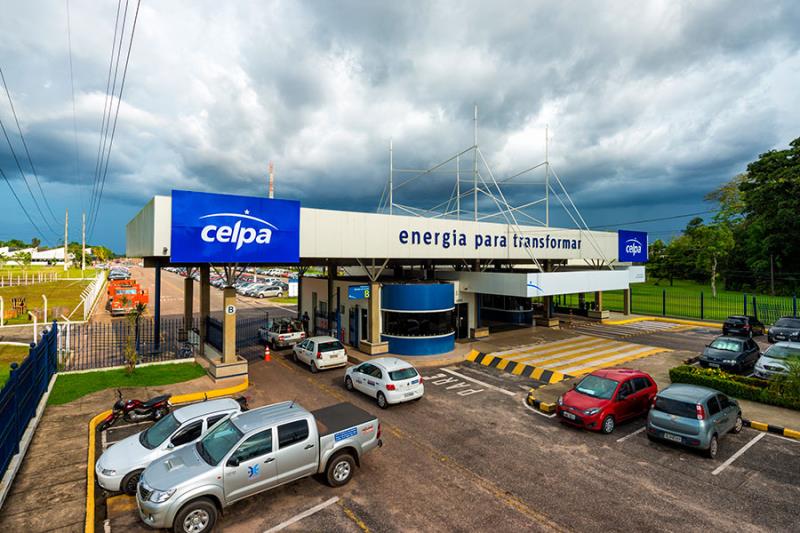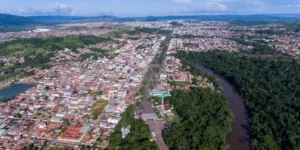The sale of Celpa in 1998, during the administration of Almir Gabriel, of the PSDB, is the most nefarious chapter in the history of the privatization of state electricity utilities. Apart from the derisory value of the transaction and the doubts and suspicions surrounding the deal, the change of command meant that an average company in the sector, as a state-owned company in Pará, became the worst of all, after it was privatized.
The poor management by the Rede group resulted in Celpa becoming unviable and going into receivership as the only way to save it. When this happened, in February 2013, the company was practically insolvent, bankrupt. Its gross debt was 3.35 billion reais. It would take 15 years of turnover just to pay off the net debt.
The company’s real operating costs exceeded the costs recognized by Aneel (the federal regulatory agency) by R$80 million a year. Consumption losses were 35%, while Aneel only allowed 28% to be recognized in the tariff, leading to a new loss of R$80 million.
Celpa’s final losses in 2012 were the highest ever recorded in the Brazilian electricity sector. Actual default was 4.12%, while Aneel’s limit was 0.9%. The population’s satisfaction rate was 44%, compared to a national standard of 78%. The company left every Para resident without electricity for four whole days throughout the year.
After two years of proceedings, Celpa came out of receivership to seek a de facto recovery and return to healthy operation. Rede left and the Equatorial group came in. Its greatest asset at the time was changing the profile and performance of the state utility in neighboring Maranhão. Cemar was considered a hopeless case and is now 3rd in the national ranking of the electricity sector and the 18th preferred company for the job.
The third chapter in Celpa’s history, which the second private controller has begun to write, is of direct interest to Pará’s two million consumers and to the state itself. The results are still modest, but they seem positive, especially given the agonizing situation in which the Rede group left it.
There has been an improvement in all the indicators, although for some, the progress is likely to provoke backlash, especially in the fight against extremely high losses and ruinous defaults. Surprisingly, however, the main front has not been established on the front line, in the relationship between the energy distributor and consumers, between the debtor and its creditors, or vice versa, but in an image war.
The Liberal group unleashed a fierce opinion campaign against Celpa, which became the main current obstacle for its controllers after the judicial recovery stage was won. Equatorial inherited Rede Engenharia’s princely (not to say sultanate) treatment of the 150 consumer units under the protective umbrella of the Romulo Maiorana Organizations.
These 150 units, ranging from the newspaper to the newspaper owner’s mansion, from the television station to companies outside the media group, practically all the homes of relatives and family members, did not pay their monthly energy bill. As they refused to fulfill their obligation, they imposed a barter system on Celpa: all of the Maioranas’ debt was converted into advertising in the family’s media outlets. Because of this demand, the company’s media budget reached its maximum of R$12 million in one year.
The new owners didn’t accept this Greek gift. With the judicial recovery, they tried to renegotiate the relationship. After back and forth, with delays and precarious agreements, the past debt was put on hold and the current consumption, amounting to 700,000 reais per month, began to be paid. But an incident soon led to the break.
The Fly soft drinks factory failed to pay its bill for the month, amounting to more than R$120,000, and had its power cut off at the end of October. It was forced to pay the bill in order to restore the supply. The reaction was immediate: the campaign against Celpa began, and is carried on daily in the newspaper, without the same emphasis on the television station because Rede Globo doesn’t allow it, controlling the editorial line of journalism so that it doesn’t degenerate into insanity, as happens when Romulo Jr. imposes his wills and whims.
The retaliation will continue until Celpa’s management submits to the demand made of its representatives: all consumption by the 150 units under Maiorana’s tutelage will have to go back into the advertising budget. Celpa’s media budget for this year for all the state’s vehicles is R$3 million. If Maiorana’s demand is accepted, the Liberal group alone would have to receive more than R$8 million. Without the accumulated debt of R$20 million being resolved.
What definition can be given to this kind of procedure other than blackmail? Because all those who play the Maiorana game against Celpa are contributing to this shameless blackmail, pretending to be innocent in order to gain credibility with the powerful. All those who agree to make statements against the company without paying attention to the spurious motivation behind them are in this situation.
Celpa is “less bad” under the new management, but it is still bad. The best way to monitor its recovery, which will inevitably be gradual, and impose the right demands on it, is not to follow the Pied Piper of Hammelin in his luxurious office behind the Rodrigues Alves forest, on Avenida 25 de Setembro (renamed after Romulo Maiorana, the father). It’s about demanding transparency, explanations, better services, respect, cordiality and honesty from the concessionaire, resorting to control and inspection institutions when necessary.
Governor Simão Jatene was one of the brains behind the privatization of Celpa in 1998, as Almir Gabriel’s all-powerful secretary. His biography is tainted by this chapter, which led to the creation of the worst state company in the Brazilian electricity sector.
He will ruin his story once and for all by joining Romulo Maiorana Júnior’s Brancoleone army or by pretending that he has nothing to do with this unseemly campaign. He can retouch his role by behaving like the state’s main public authority, guided not by the appetites of a private group, which has lost its sense of limits, but by the higher collective interests.
The dangerous stage reached by the Liberal group’s furious campaign requires the governor, as spokesperson, mediator and leader of society, to make a choice: either grow up or fall apart for good, letting a serious and vital issue become a bargaining chip in a closed circuit. Pará residents, already skeptical or hopeless, are dreaming of a good surprise.









